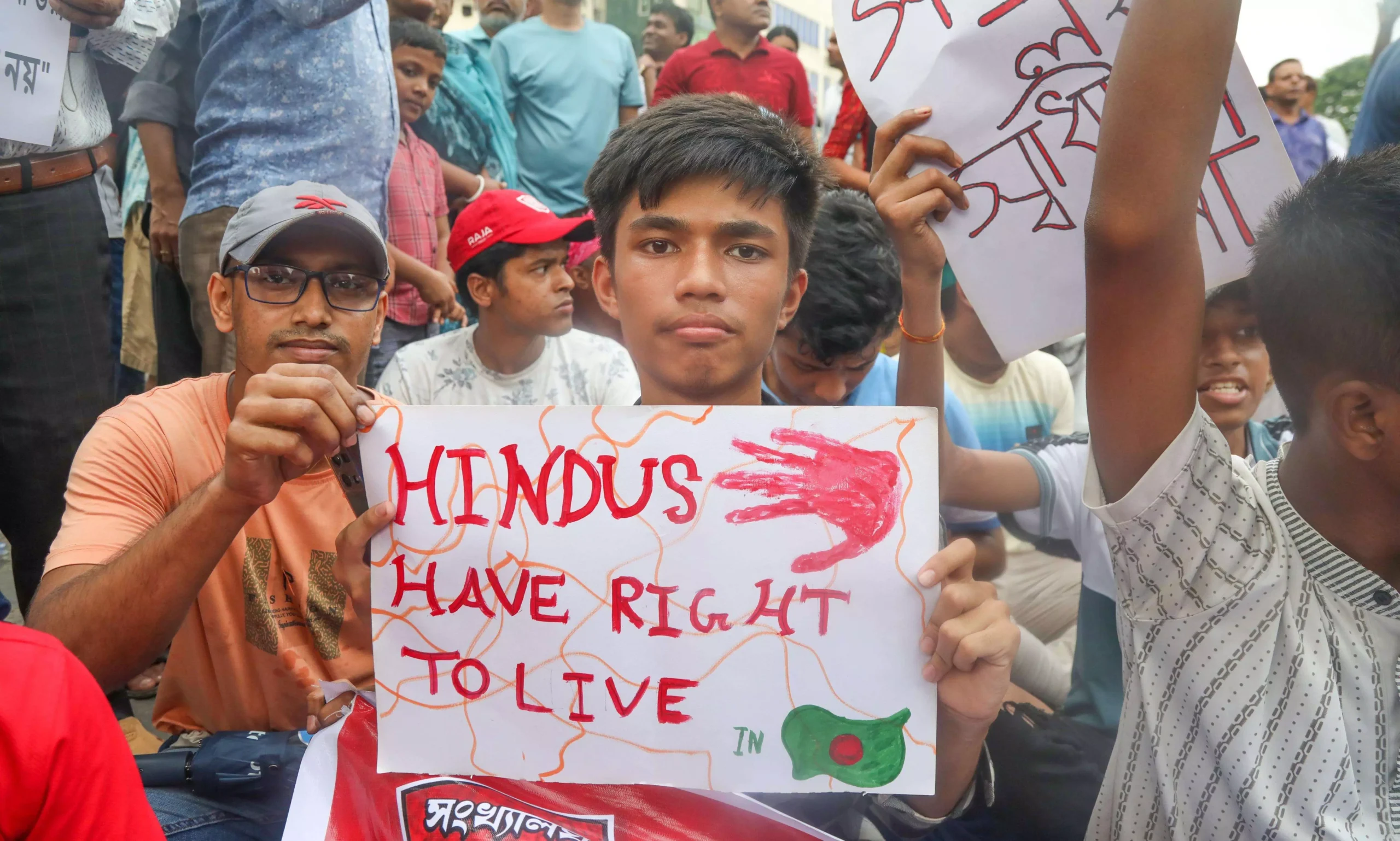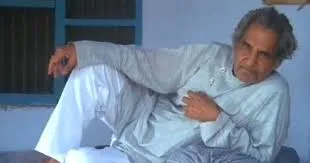With the interim government under Mohammad Yunus in place in Bangla Desh, its primary task should be to restore normalcy and ensure that Hindus and other minorities were completely safe in the country. There have been widespread reports on the targeted killing of Hindus and the issue could snowball into a major problem in the future. Killing of innocent people, wherever it happens, is unjustified and the massacre of Hindus in Bangla Desh, could have repercussions in India, which would put the relations between New Delhi and Dhaka under a lot of stress. It has been observed in the past as well that whenever there is a regime change in either Pakistan, Bangla Desh or Afghanistan, the Hindu minorities, suffer the consequences even when they have nothing to do with the developments.
In the latest instance, there are disturbing reports coming in and therefore, Hindus need protection. The Indian government is so far playing down many things that are happening there, but this may not be the case, if things deteriorate further. India just cannot be a mute spectator. It is being claimed in many quarters that Sheikh Hasina, the former Prime Minister had to quit and flee because she would have met the same fate as her late father, Sheikh Mujibur Rehman who was killed along with other family members around the same time, about 50 years ago.
Sheikh Mujibur Rehman, was the Father of the Nation and Bangla Desh’s first Head of government. He was a friend of India like his daughter, who is now at an undisclosed place in the national capital. What is being suggested in an undelivered speech by the erstwhile Prime Minister is that had she agreed to provide a base at Saint Martin, the small island in the Southern part of Bangla Desh in the Bay of Bengal, to the Americans, things would have been okay towards her. It is also being said that the western powers were wanting to carve out a Christian country between Bangla Desh and Mynamar, a possibility which appears to be unbelievable. It is common knowledge that Sheikh Hasina did not enjoy very good relations with Washington and had been resisting attempts by the super power to make inroads there. In this context., there are also reports that indicate that the current interim head of the government has the backing of the Americans, and has in the past enjoyed a good rapport with former US Presidents.
However, in India, there appears to be no clarity on whether it was the Americans or the Chinese who ousted Sheikh Hasina, with Pakistan being the common ally. What has happened in Dhaka and elsewhere in the country does not reflect very well on New Delhi’s failure to see things coming. At one level, it was an intelligence failure, like it was, also during the Kargil conflict (as admitted by then CoAS General VP Malik), as it was also the inability to anticipate the developments by the foreign office. On both scores, New Delhi needs to introspect on what went wrong and why? There needs to be complete clarity on the issue and the relations with the neighbours should be repaired without any further delay.
The question that also arises is whether the former Bangla Desh Prime Minister would stay back in New Delhi or proceed to some other country to seek political asylum. It is obvious that the current dispensation here must be aware of what she plans to do and must have drawn up a plan. In the mid-1970s when her father and other family members were assassinated, she and her sister, were provided asylum in New Delhi and stayed at a D-II type flat at Pandara Road for many years. It is possible that she may be put in a safe house and allowed to stay even now, unless the pressure is so much that she may have to leave India for another destination. The change of regime in Bangla Desh, is also the reiteration of the bitter truth that democracy in most Islamic countries, cannot sustain itself. It has been observed over the years, that the regime changes in these countries were mostly violent and are at the cost of the will of the people. In most instances, the Americans or some other super power come and support the dictators who are put in the position of power. This has happened all over the world, particularly in India and Pakistan, two countries in our immediate neighbourhood.
The developments in Bangla Desh, have put additional burden on our resources and extra vigil on the over 4000 miles of shared bordered with that country shall have to be stepped up. The influx from there has already been a matter of political sparring in Assam, Bengal and many other parts and now with people fleeing for their lives from there, politics would again get more pronounced. It is also the appropriate time for New Delhi to review its foreign policy in respect of its neighbours and have a more pragmatic approach which would help in mending relations. Simultaneously, the role of both China and America has to be constantly reviewed from time to time.
The intelligence agencies should be also held accountable for their inability to read the ground situation. Bangla Desh is burning and New Delhi needs to take lessons from it. Sheikh Hasina despite being popularly elected, failed to read the pulse of her people. This eventually led to her downfall.























